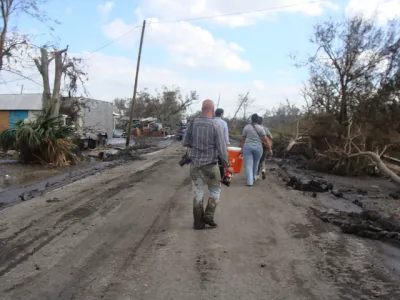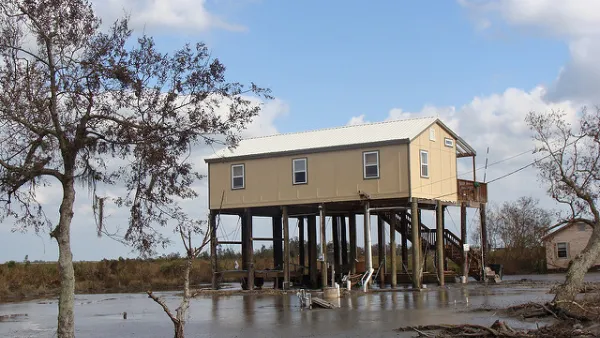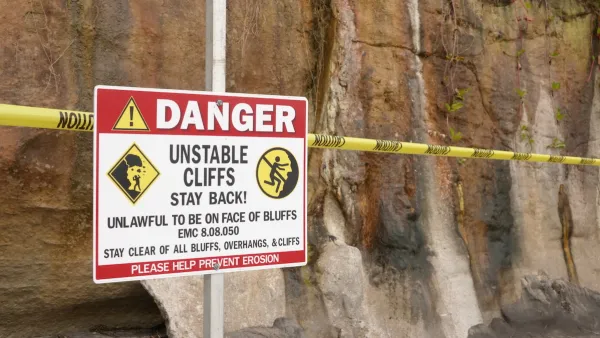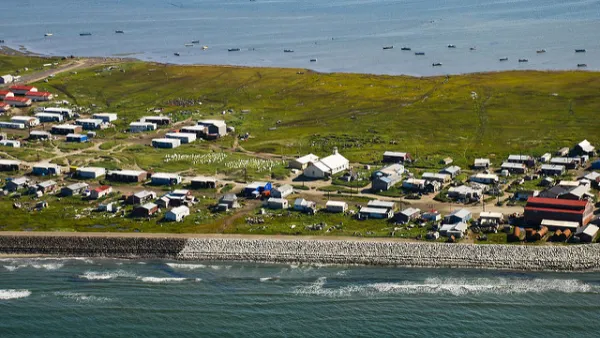A change of nomenclature shifts focus to the self-determination of residents relocating from the coast of Louisiana as rising seas inundate their homes.

Matthew D. Sanders writes of Isle de Jean Charles, a remote island community along the furthest stretches of southeastern Terrebonne Parish in Louisiana:
This is the setting of the first federally funded, climate-change induced community resettlement project—a $48.3 million effort to create a model for managed retreat at a scale not previously attempted. The Island is disappearing and this federal investment will ultimately determine whether the Island community disappears along with it, or whether it can experience a rebirth in a higher, drier, upland location.
A key message portrayed in this article, compared to previous media coverage of the Isle de Jean Charles resettlement project, addresses a question of nomenclature. Instead of "climate change refugees," planners working on the project prefer the term "climate change pioneers."
"They’re not refugees," writes Sanders. "They are pioneers who have willingly volunteered to take a proactive approach in the face of the sobering reality that the Island—their Island—will not withstand the impacts of future storms yet to come." That pioneering spirit is evident in the work residents are putting into the project, "collaborating with a project team of state officials, planners, engineers and architects to plan the look, feel, function and composition of the new community, but also to outline an appropriate and dignified 'long goodbye' for their Island."
FULL STORY: Don’t Label Them Climate Change Refugees, Says a Louisiana Planner, They’re Pioneers

National Parks Layoffs Will Cause Communities to Lose Billions
Thousands of essential park workers were laid off this week, just before the busy spring break season.

Retro-silient?: America’s First “Eco-burb,” The Woodlands Turns 50
A master-planned community north of Houston offers lessons on green infrastructure and resilient design, but falls short of its founder’s lofty affordability and walkability goals.

Delivering for America Plan Will Downgrade Mail Service in at Least 49.5 Percent of Zip Codes
Republican and Democrat lawmakers criticize the plan for its disproportionate negative impact on rural communities.

Test News Post 1
This is a summary

Test News Headline 46
Test for the image on the front page.

Balancing Bombs and Butterflies: How the National Guard Protects a Rare Species
The National Guard at Fort Indiantown Gap uses GIS technology and land management strategies to balance military training with conservation efforts, ensuring the survival of the rare eastern regal fritillary butterfly.
Urban Design for Planners 1: Software Tools
This six-course series explores essential urban design concepts using open source software and equips planners with the tools they need to participate fully in the urban design process.
Planning for Universal Design
Learn the tools for implementing Universal Design in planning regulations.
EMC Planning Group, Inc.
Planetizen
Planetizen
Mpact (formerly Rail~Volution)
Great Falls Development Authority, Inc.
HUDs Office of Policy Development and Research
NYU Wagner Graduate School of Public Service





























